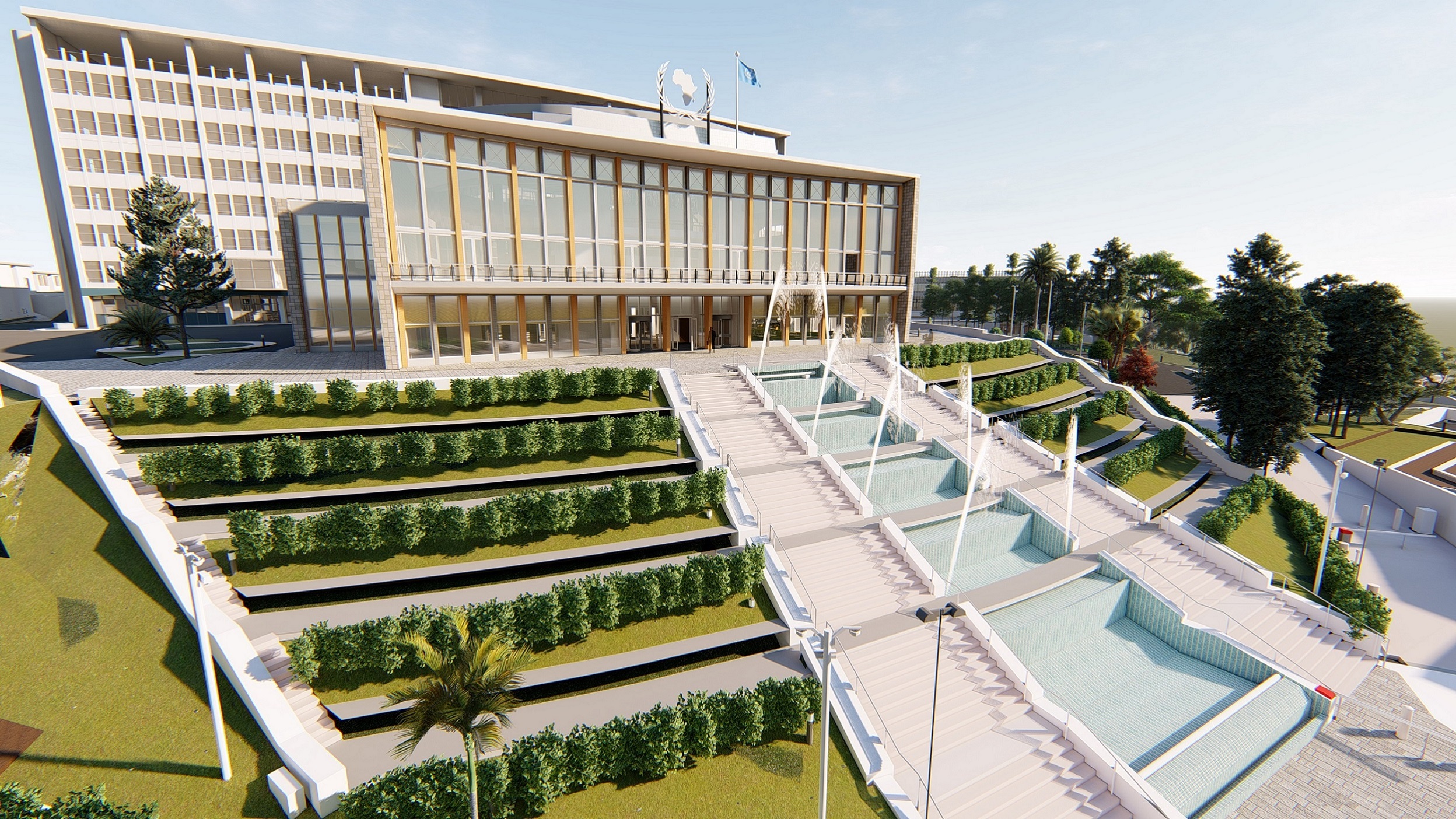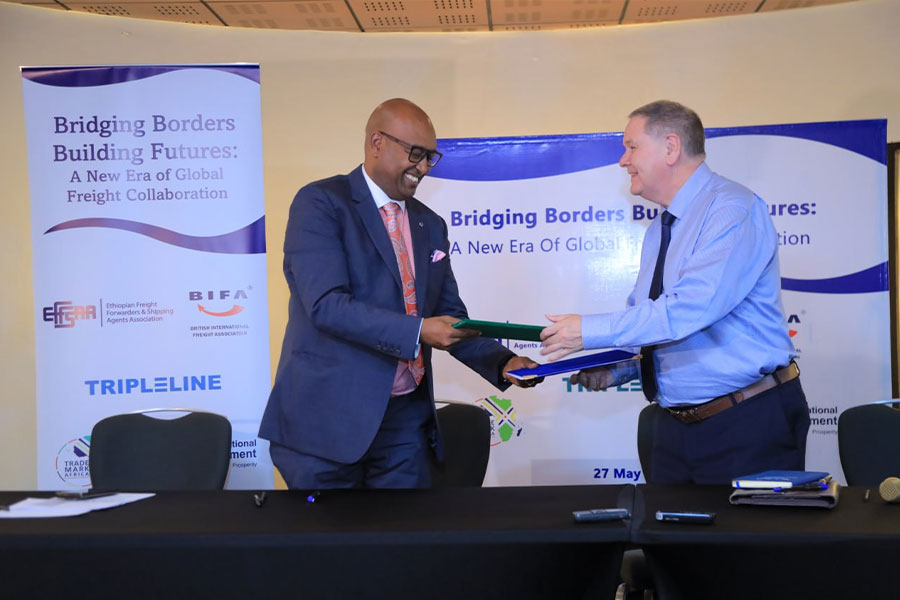
Jun 22 , 2024
By Hintsa Andebrhan
In a recent turn of events, Prime Minister Abiy Ahmed (PhD) has reached out to Qatar, potentially seeking its mediation in the diplomatic tensions with its southern neighbour Somalia. A letter from Prime Minister Abiy, delivered by Finance Minister Ahmed Shide to Qatar's Emir, Tamim bin Hamad Al Thani (Sheik), is reported - at least on the surface - hope to bolster bilateral relations. However, subsequent actions hint at a more pressing agenda.
Three days later, the Qatari Emir held separate phone conversations with Somali President Hassan Mohamud and Prime Minister Abiy, suggesting that Ethiopia may seek Qatari help to resolve its diplomatic tussles with Somalia. Assuming this would be the case, it raises questions about Ethiopia’s leaders' strategic disposition.
The geopolitical dynamics of the Horn of Africa and the Red Sea arena are intricate and influenced by multiple regional and international powers, including Iran. Qatar’s involvement in the region is far from straightforward, as it often operates within a web of alliances and adversaries involving major Middle Eastern players such as Saudi Arabia, the United Arab Emirates (UAE), and Egypt. Qatar has long pursued a distinct foreign policy in this region, often leveraging its relationships to offset the influence of other regional powers.
Somalia, in particular, has been a confluence of Qatar’s strategic interests in the region. Doha has cultivated strong ties with Mogadishu, viewing Somalia as a crucial partner in its broader regional strategy. This relationship extends beyond mere diplomacy; it is part of a calculated effort by Qatar to enhance its influence, often in alignment with Iranian interests. The involvement of other powerful actors further complicates the geopolitical chess game. With considerable interests in Somalia and the broader region, Saudi Arabia, the UAE, and Egypt have not hesitated to assert their influence, often in ways that challenge Qatar’s objectives.
Somalia's leaders have charted these waters with a clear-eyed understanding of its sovereignty and national security priorities, often playing these external powers against one another to their advantage.
Ethiopia appears to be less adept at manoeuvring within this complex geopolitical arithmetic. Addis Abeba’s recent diplomatic overture, including its controversial memorandum of understanding signed with the President of self-declared Somaliland, has placed it at odds with its neighbours and regional heavyweights. The current political crisis in Sudan adds another layer of complexity, as Middle Eastern powers are deeply entangled in shaping the outcomes there, further impacting Ethiopia’s regional standing.
If Qatar is indeed positioned as an impartial mediator between Ethiopia and Somalia, Prime Minister Abiy’s administration will need a robust and nuanced strategy to navigate negotiations in Doha. It is essential to recognise that Qatar, in any mediating role, will likely pursue its interests, which may not align with those of Ethiopia. Given the established rapport between Qatar and Somalia, Doha’s mediation could potentially skew towards favouring Somalia.
While diplomatic engagement is essential for resolving conflicts, it must be approached with a strategic mindset. The complexities of the Horn of Africa's geopolitics demand a nuanced approach, and Ethiopia's leaders should be prepared to navigate these waters with skill and foresight. Engaging Qatar as a mediator may offer a path forward, but only if underpinned by a strong and coherent strategy prioritising Ethiopia’s long-term political and national security interests.
Major Middle Eastern players are unlikely to welcome an enhanced Qatari role in the Horn of Africa. These countries have vested interests and historically supported Somalia’s political agenda over Ethiopia’s in international forums. The Western bloc, led by the United States and Israel, remains vigilant of Qatar’s activities in the region, particularly its cosiness with Iran. The geopolitical stakes are high, and any misstep could have far-reaching implications for Ethiopia’s regional standing and internal stability.
Prime Minister Abiy’s administration would do itself well in crafting a well-defined strategic policy before engaging in any mediated talks under Qatar’s auspices. Diplomatic efforts must be grounded in a clear understanding of the regional power dynamics and a commitment to Ethiopia’s national interests. The strategy could consider carefully exploring alternative diplomatic channels to address Ethiopia's disputes with Somalia. Engaging with regional organisations such as the IGAD and leveraging international frameworks under the United Nations could provide more balanced negotiation platforms, ensuring that Ethiopia’s positions are adequately safeguarded.
PUBLISHED ON
Jun 22,2024 [ VOL
25 , NO
1260]


Sunday with Eden | Jul 20,2019

Commentaries | May 08,2021

Fortune News | Feb 16,2019

Radar | May 27,2023

Fortune News | Jan 18,2020

Commentaries | May 31,2025

Fortune News | May 18,2019

Radar | Jun 07,2020

Radar | May 31,2025

Advertorials | Oct 02,2023

My Opinion | 132151 Views | Aug 14,2021

My Opinion | 128561 Views | Aug 21,2021

My Opinion | 126482 Views | Sep 10,2021

My Opinion | 124091 Views | Aug 07,2021





Dec 22 , 2024 . By TIZITA SHEWAFERAW
Charged with transforming colossal state-owned enterprises into modern and competitiv...

Aug 18 , 2024 . By AKSAH ITALO
Although predictable Yonas Zerihun's job in the ride-hailing service is not immune to...

Jul 28 , 2024 . By TIZITA SHEWAFERAW
Unhabitual, perhaps too many, Samuel Gebreyohannes, 38, used to occasionally enjoy a couple of beers at breakfast. However, he recently swit...

Jul 13 , 2024 . By AKSAH ITALO
Investors who rely on tractors, trucks, and field vehicles for commuting, transporting commodities, and f...

Jul 12 , 2025
Political leaders and their policy advisors often promise great leaps forward, yet th...

Jul 5 , 2025
Six years ago, Ethiopia was the darling of international liberal commentators. A year...

Jun 28 , 2025
Meseret Damtie, the assertive auditor general, has never been shy about naming names...

Jun 21 , 2025
A well-worn adage says, “Budget is not destiny, but it is direction.” Examining t...

Jul 13 , 2025 . By YITBAREK GETACHEW
The Addis Abeba City Revenue Bureau has introduced a new directive set to reshape how...

Jul 13 , 2025 . By BEZAWIT HULUAGER
Addis Abeba has approved a record 350 billion Br budget for the 2025/26 fiscal year,...

Jul 13 , 2025 . By RUTH BERHANU
The Addis Abeba Revenue Bureau has scrapped a value-added tax (VAT) on unprocessed ve...

Jul 13 , 2025 . By NAHOM AYELE
Federal lawmakers have finally brought closure to a protracted and contentious tax de...